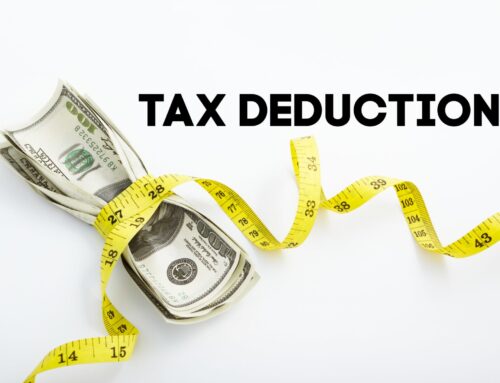What is an FDD and Why is it Important?
Everything You Need to Know About the Franchise Disclosure Document
So, you’re diving into the world of franchising, and the Franchise Disclosure Document (FDD) has made its way to your desk. If just the thought of sifting through this lengthy, jargon-filled document makes your eyes glaze over, don’t worry—you’re not alone. Let’s break it down, understand what it’s all about, and, most importantly, why you need to pay attention to it.
What Is the FDD, Anyway?
The FDD might sound intimidating, but it’s essentially your roadmap to understanding a franchise. Its purpose is to provide transparency and protect you as a potential franchisee. It’s broken down into 23 sections (or Items) that cover everything from the franchisor’s business experience and litigation history to initial fees, investment estimates, and more.
Each of these sections is packed with crucial information. Here’s a quick glance at what you’ll find:
- Item 1: Background of the Franchisor, Parents, Predecessors, and Affiliates
- Item 2: Business Experience
- Item 3: Litigation History
- Item 4: Bankruptcy
- Item 5: Initial Fees
- Item 6: Other Fees
- Item 7: Estimated Initial Investment
- Item 8: Restrictions on Sourcing Products and Services
- Item 9: Franchisee’s Obligations
- Item 10: Financing Options
- Item 11: Franchisor’s Assistance and Training
- Item 12: Territory Rights
- Item 13: Trademarks
- Item 14: Patents and Proprietary Information
- Item 15: Obligations to Participate in the Business
- Item 16: Restrictions on What the Franchisee Can Sell
- Item 17: Renewal, Termination, and Dispute Resolution
- Item 18: Public Figures Involved (if any)
- Item 19: Financial Performance Representations
- Item 20: Outlets and Franchisee Information
- Item 21: Financial Statements
- Item 22: Contracts
- Item 23: Receipts
Sound like a lot? It is—but each piece of information is designed to help you understand what you’re getting into.
Why Is the FDD Important?
The FDD levels the playing field by making it easy to compare different franchises. Whether you’re exploring a well-established brand or a newer concept, every franchise must provide you with an FDD before you sign any contracts or pay any fees. The purpose? To give you a clear picture of the franchise’s operations, history, and expectations.
A Quick History Lesson
Before it was called the FDD, this document went by the acronym UFOC (Uniform Franchise Offering Circular). It wasn’t until July 1, 2008, that the FDD became the industry standard under the Federal Trade Commission (FTC) regulations, replacing the UFOC. These changes were made to increase transparency and protect prospective franchisees from deceptive practices.
Every year, franchises registered with the FTC must renew their FDDs with updated information. This ensures you’re seeing the most current data—no relying on rosy projections from five years ago. This is why, if you’re exploring a franchise between March and May, some systems might “go dark” temporarily as they file their new FDDs with the state. It’s a minor delay but a good sign that the franchise is complying with federal and state laws.
What to Know Before You Sign
Before you’re even handed the FDD, you’ll likely need to show interest in the franchise. Once your initial application is accepted, the franchisor must provide the FDD at least 14 days before you sign any binding agreements or make payments. This gives you time to review the document, ask questions, and conduct your due diligence.
One key point: After receiving the FDD, you’ll be asked to sign a receipt page (Item 23). This just acknowledges that you’ve received the document—it doesn’t bind you to anything.
How to Approach the FDD (Without Getting Overwhelmed)
Approach the FDD like you would a serious relationship. Take the time to get to know it, understand its quirks, and be honest about whether it’s a good fit for you. Treat the process like dating: ask questions, dig deep, and don’t be afraid to walk away if it doesn’t align with your goals. Once you’re fully committed (i.e., sign a contract), the FDD becomes more like a security blanket, giving you a solid framework to fall back on.
Some sections you’ll want to pay extra attention to include:
- Item 7: Estimated Initial Investment – This will outline the costs you’ll need to budget for when starting the franchise.
- Item 19: Financial Performance Representations – Not all franchises disclose financial performance data, but when they do, this section is your best insight into potential profitability.
Why Hiring a Franchise Attorney Is a Smart Move
Reviewing an FDD is no small feat, and while it’s tempting to go it alone, having a franchise attorney can make all the difference. Just like you wouldn’t ask an orthopedic surgeon to perform eye surgery, you shouldn’t rely on a general business lawyer to review a franchise agreement. Franchise attorneys specialize in these documents and can guide you through all the legal nuances, helping you understand what you’re signing up for.
But here’s a crucial point: The goal of hiring an attorney isn’t to change the FDD. These documents, much like mortgage contracts, aren’t easily altered. An attorney can, however, walk you through the terms, explain any red flags, and help ensure you’re making an informed decision.
What’s Next?
After reviewing the FDD and getting clarity on the business, the next step is validation. Speak to current franchisees about their experience. Ask them candid questions about their earnings, support from the franchisor, and overall satisfaction. This is where you’ll get a real sense of what it’s like to be part of the franchise.
Final Thoughts
The FDD is your best friend when it comes to investigating a franchise opportunity. Yes, it’s dense and a bit daunting, but it’s designed to protect you. Take the time to read it thoroughly, consult with professionals, and use it to your advantage. Once you’ve made it through, you’ll be equipped to make a confident and informed decision about whether this franchise is the right investment for you.
Want more guidance? Feel free to reach out. I’m here to help you find the franchise that best matches your goals and criteria.





